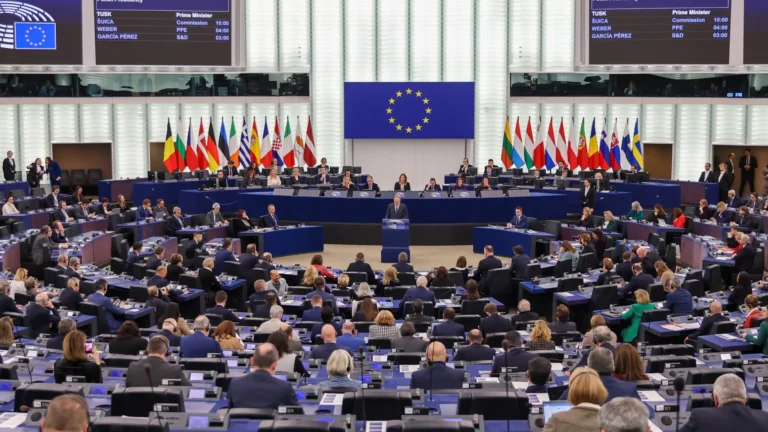As the conflict in Ukraine continues into its third year, diplomatic efforts are intensifying to broker a ceasefire. U.S. President Donald Trump and Russian President Vladimir Putin are scheduled to hold talks on Tuesday, focusing on critical issues such as territorial disputes and control over key infrastructure.

In this file photo taken on July 7, 2017, then US president Donald Trump meets with Russian President Vladimir Putin at the G-20 Summit in Hamburg, Germany. EVAN VUCCI / AP
Upcoming High-Stakes Dialogue
President Trump announced his forthcoming discussion with President Putin, expressing optimism about ending the ongoing war. “A lot of work’s been done over the weekend. We want to see if we can bring that war to an end,” Trump stated. He emphasized that the talks would address “land” and “power plants,” indicating that negotiators have already considered “dividing up certain assets.”
Ceasefire Proposal and Key Issues
The U.S. is advocating for a 30-day interim ceasefire, a proposal Ukraine accepted last week. However, Russia’s support hinges on several conditions. Among them is the status of Ukrainian troops currently in Russia’s Kursk region. Putin has expressed concerns that Ukraine might use the truce to regroup and has questioned the enforcement mechanisms of the ceasefire.
Additionally, Russia seeks “ironclad” guarantees that Ukraine will remain neutral and be excluded from NATO membership. Deputy Foreign Minister Alexander Grushko reiterated Moscow’s opposition to the deployment of NATO peacekeeping forces in Ukraine, suggesting that only unarmed observers could be considered post-agreement.
International Reactions and Concerns
European leaders have expressed skepticism regarding Russia’s intentions. French President Emmanuel Macron emphasized that the deployment of allied forces in Ukraine is a sovereign decision of Kyiv and not subject to Russian approval. Meanwhile, UK Prime Minister Keir Starmer criticized Russia’s response to the ceasefire proposal as “not good enough,” following a virtual summit on Ukraine.

French President Emmanuel Macron During a Speech in Brussels, 6th march 2025 EPA/OLIVIER MATTHYS
Ukrainian President Volodymyr Zelenskyy accused Putin of deliberately prolonging the war by dragging out the ceasefire process. He highlighted ongoing Russian military activities, including drone strikes and troop movements near the Ukrainian border, as evidence of Moscow’s lack of commitment to peace.
Ongoing Conflict and Humanitarian Impact
Despite diplomatic efforts, hostilities persist. Over the weekend, both Russia and Ukraine conducted drone strikes, resulting in casualties and infrastructure damage. Ukrainian forces confirmed their withdrawal from Sudzha in the Kursk region, a strategic area previously occupied by Ukraine.
The conflict has led to significant humanitarian concerns, with civilian casualties and displacement. The international community continues to monitor the situation closely, urging both parties to prioritize the safety and well-being of affected populations.
As the Trump-Putin talks approach, the world watches with cautious hope that a path to peace can be forged, addressing the complex issues of territorial sovereignty and regional stability.


